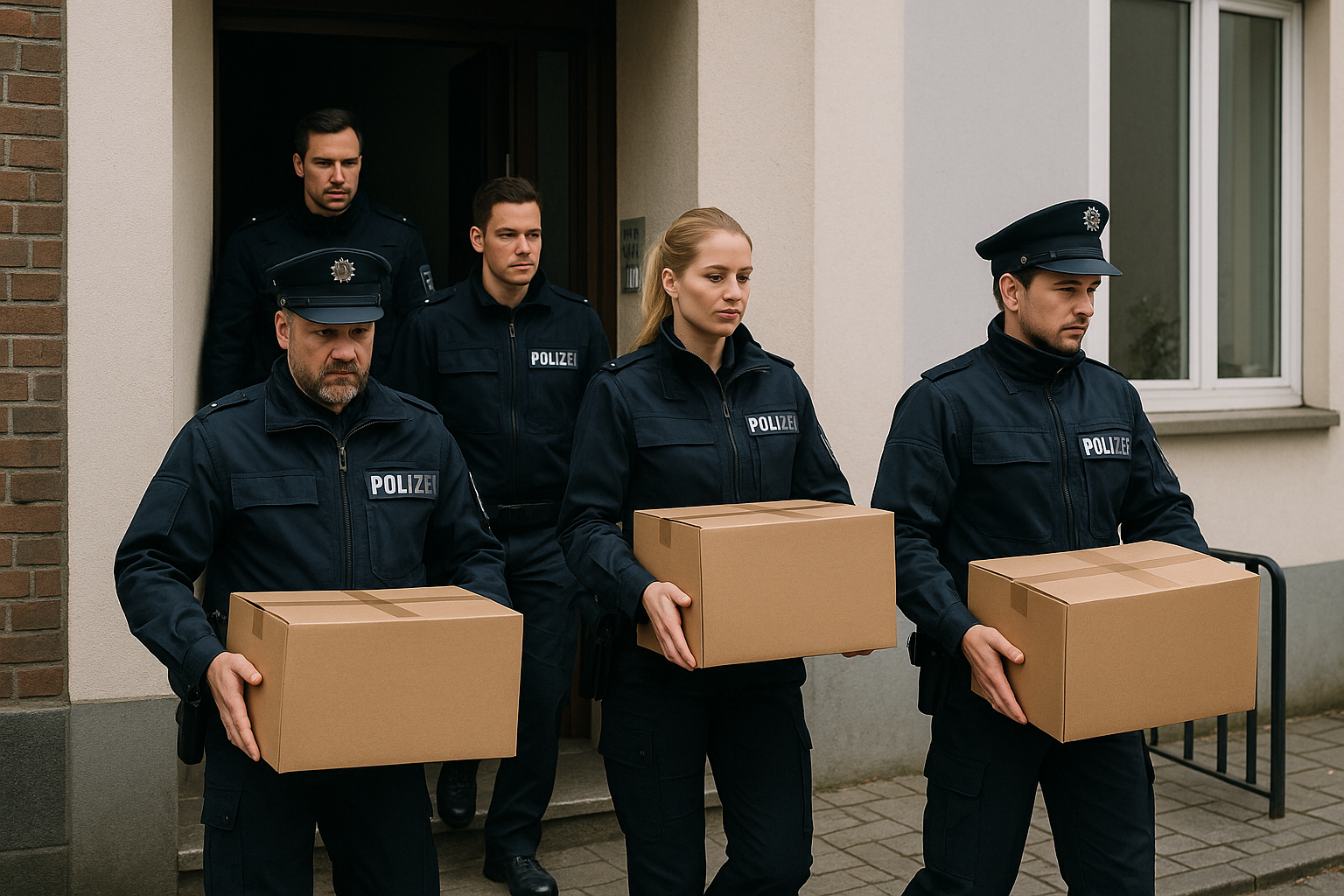When the police or public prosecutor suddenly turn up at your door and take away your belongings, there is usually a great deal of uncertainty. Especially in preliminary proceedings, the so-called Confiscation A moment of shock for many - accompanied by the feeling of being helplessly at the mercy of others. But what exactly does this measure mean? Who is authorised to order it, what is permitted - and what is not? And how should you behave in such a situation?
As an experienced criminal law firm with offices in Bremen we would like to give you a clear overview in this article. It is not only about the legal basis of confiscation, but also about specific recommendations for action - so that you know what to do in an emergency.
1 What is a seizure?
The seizure is a Coercive measures in criminal proceedings and regulated in Sections 94 et seq. of the Code of Criminal Procedure (StPO). It enables the investigating authorities to take objects into official custody - especially if they are considered to be Evidence or are required for later collection.
It is important to note that in many cases a seizure is carried out first before a formal confiscation. However, if the person concerned refuses to surrender the property voluntarily or if a later dispute is to be expected, the police or public prosecutor's office will resort to seizure.
👉 Our adviceEven if the pressure is high in this situation - do not hand over any objects voluntarily. Voluntary surrender can subsequently legitimise even an actually unlawful measure. This means you lose valuable defence options.
2 When is a seizure permissible?
Not every measure taken by the investigating authorities is automatically lawful. In order for a seizure to be carried out, the following conditions must be met Clear requirements be fulfilled:
Initial suspicionThere must be concrete evidence of a criminal offence (Section 152 (2) of the Code of Criminal Procedure).
ProportionalityThe measure must be suitable, necessary and proportionate. There must be a balance between the interference with fundamental rights and the interest in criminal prosecution.
In Bremen in particular - a city with active investigative authorities and a constant focus on security issues - we see time and again that this principle of proportionality needs to be critically scrutinised.
3. what may be confiscated - and what may not?
As part of a seizure, a wide range of items may be transferred to official custody - for example:
suspected means of offence or tools,
personal items such as clothing,
Documents, notes, contracts,
digital devices (e.g. smartphones, laptops, USB sticks),
stored content such as emails, chat histories or cloud data.
AttentionSensitive data may also be seized under certain circumstances - for example, if the communication has already been completed and is proportionate.
However, confiscation is not permitted:
Documents submitted to the Prohibition of confiscation (§ 97 StPO),
any communication with defenders,
Records of persons subject to professional secrecy, such as doctors, psychologists or counsellors.
These protective mechanisms serve to safeguard the relationship of trust and prevent unauthorised circumvention of the right to refuse to testify.
4 Who is authorised to order a seizure?
In principle, only Courts order a seizure (Section 98 (1) StPO). However, there is one important exception: In case of imminent danger the public prosecutor's office or the police may also take action.
However, the following also applies here: not every „imminent danger“ is legally tenable. Particularly in the case of sensitive measures - such as press products or postal items - even in such situations a court decision is mandatory necessary.
In practice - including here in Bremen - we often see the police refer to „imminent danger“ without sufficient justification. A legal examination is particularly worthwhile in these cases.
5 How should you react in the event of a seizure?
If a seizure is carried out on your premises, keep calm - as difficult as it may be. The following steps will help to secure your rights:
Ask to see the judicial decision.
Is there none? Ask for the reason for „imminent danger“.
Enter nothing out voluntarily - This strengthens your defence.
Contradict expressly object to the measure. Ask for the objection to be recorded.
Request a Copy of the protocol or take a photo of it.
Contact us immediately hire a defence lawyer.
Make No information on the matter. You must tolerate the measure - nothing more.
6 What are the legal options?
If the seizure was initiated by the police or public prosecutor's office, it must be confirmed by a court within three days (Section 98 (2) of the Code of Criminal Procedure). You can also make this application yourself - or through your defence.
If a court order has already been issued, there is the possibility of a Complaint according to § 304 StPO. As criminal defence lawyers, we carefully examine whether the requirements of the measure have been met and whether it makes sense to contest it.
Conclusion: Know your rights - act prudently
A seizure can seem intimidating, but it is clearly regulated by law. If you know your rights, do not hand over anything prematurely and seek legal advice at an early stage, you can effectively defend yourself against unlawful measures. Whether in Bremen or nationwide - we are at your side when the pressure of investigations and uncertainty are high. Your defence begins with the right reaction at the crucial moment.
FAQs on the subject of confiscation
1 What is a seizure in criminal law?
A seizure is the compulsory securing of objects by the police or public prosecutor's office to preserve evidence or for confiscation.
2 Who is authorised to order a seizure?
As a rule, only the court. In urgent cases („imminent danger“), the police or public prosecutor's office may also act - with judicial review.
3. what may not be confiscated?
Objects that are subject to the ban on confiscation - e.g. communication with defence lawyers or certain persons subject to professional secrecy.
4. what should I do in the event of a seizure?
Keep calm, don't hand over anything voluntarily, explain your objection, don't make any statements - and get legal help quickly.
5 How long does a seizure take?
It ends with the conclusion of the criminal proceedings - unless the items are confiscated or destroyed.





